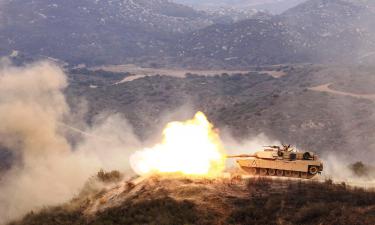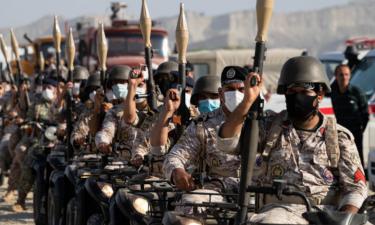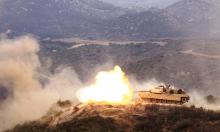Who Set Up Putin?
Equality of candidates' rights infringed upon, Kharitonov and Khakamada think
Chairman of the RF Central Election Commission Alexander Veshnyakov thinks federal TV channels went too far while covering meeting of Vladimir Putin with his authorized delegates. According to RIA Novosti, Alexander Veshnyakov made the statement after some of Russia's candidates for presidency sent their protests to the Central Election Commission. The candidates insist that state-run TV channels infringed upon their rights when they covered the meeting of Vladimir Putin with delegates so extensively.
Last Thursday, candidate for presidency from the Communist Party Nikolay Kharitonov informed he would lodge a protest to the Central Election Commission because candidate Putin had infringed upon "the equality of candidates' rights". Nikolay Kharitonov says he wants to organize a meeting with his electorate and have the 2nd TV channel cover it.
Later, Irina Khakamada also sent an inquiry to the Commission as well. The candidate for presidency thinks TV broadcasting of work meetings of the incumbent president is quite rightful. However, the Central Election Commission should treat quite differently 30-minute TV reports from the meeting of candidate Putin with his authorized delegates. Interfax reports that Irina Khakamada requested the Central Election Commission to let her have some time on the air to meet her authorized delegates.
RBC news agency reports, Alexander Veshnyakov did not see the whole of Vladimir Putin's appearance on TV and could not comment upon the situation yet. He promised to study the situation after his visit to the republic of Tatarstan.
The appearance of Vladimir Putin before his authorized delegates was broadcast by the Rossia TV channel in the evening of February 12. The report about candidate Putin's pre-election meeting with authorized delegates lasted for 32 minutes and his personal speech was 29 minutes 5 seconds long. At that, Vladimir Putin defined his speech as a report to the electorate and an account of his prospective plans. That is why further news reports on Rossia television also stated that was a meeting of the candidate for presidency with the electorate.
Meanwhile, the TV channel says candidate Vladimir Putin did not pay for the report from the election fund, as it was not his election campaign but a report about the incumbent president's activity. That was not free TV appearance of candidate Putin, the right guaranteed to all candidates for presidency. Vladimir Putin did not take part in the draw of free TV appearance conducted in the Central Election Commission on February 9.
According to the official prices for time on the air published by the All-Russian State-run TV and Radio Company (VGTRK), 30-second agitation costs 90-166 thousand rubles depending upon the rating of a program where it appears. Thus, the news agency states the report about Vladimir Putin's meeting with authorized delegates may cost 5.2 - 9.6 million rubles, Lenta.Ru reports.
Usage of the administrative resource by Vladimir Putin was appealed against just once when the president delivered a panegyric at a congress of United Russia on September 19, 2003. The appeal was registered by Communist Leader Gennady Zyuganov who cited an official document prohibiting A-category officials, where Vladimir Putin belonged, to conduct pre-election agitation. However, Russia's Supreme Court rejected the appeal on the basis of the Constitution clause #91 exempting the president from juridical and managerial responsibility.
Vladimir Putin said at the meeting with the authorized delegates on February 12: "I am sure an incumbent president should not push himself, as he should have done it within the four years of the presidential term. At the same time, I think I must give an account to the electorate and the whole of Russia of results achieved within the past four years; I must also tell people what I would do within the next four years if they prefer my candidature at the presidential election on March 14."
When Vladimir Putin reported his program for the next presidential term on February 12 he could not expect what consequences it might have. What is excusable for the president cannot be excusable for technologists from Putin's election headquarters.
Was it the fault of someone from the Presidential Administration or of leading TV journalists? On January 20, Vladimir Putin had a close meeting with chief journalists of Russia's basic TV channels. Several participants of the meeting confirmed the meeting took place, but would not let know details of the meeting. The journalists even requested anonymity as the meeting was close. The Echo Moskvy radio reports that the meeting was dedicated to coverage of the presidential election in the mass media. The presidential press-service would not comment upon the information.
Alexander Veshnyakov promised to look into the situation. Interfax reports that the chairman of the Central Election Commission supposes the number of registered candidates for presidency will soon reduce. He adds that regional election commissions should wait for some time before issuing voting papers.
Alexander Vashnyakov believes the number of candidates for Russia's presidency may be six or five instead of the seven ones that we have by this moment.
Subscribe to Pravda.Ru Telegram channel, Facebook, RSS!





